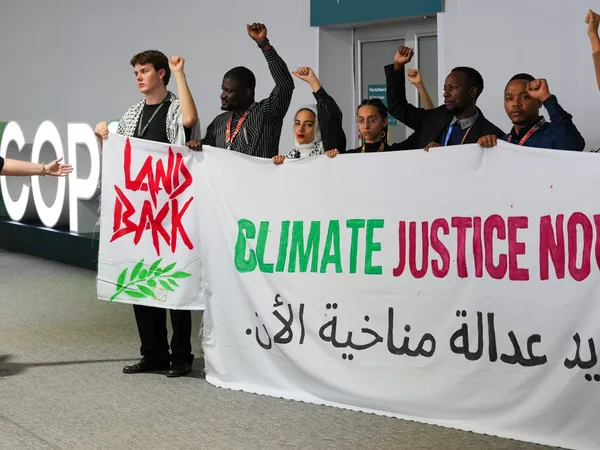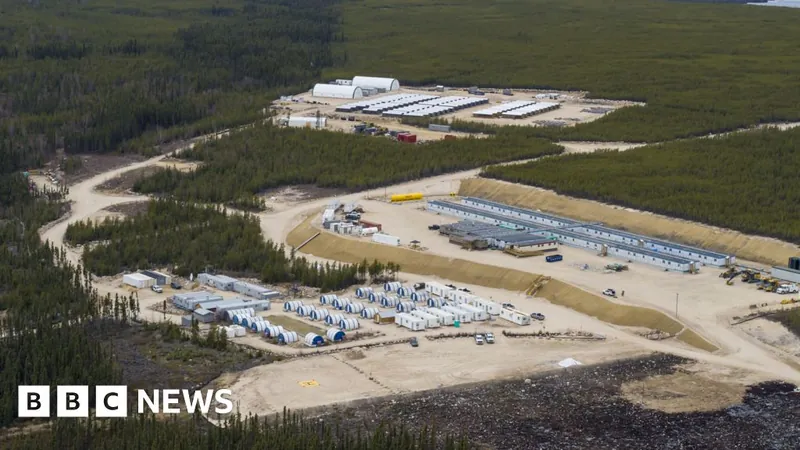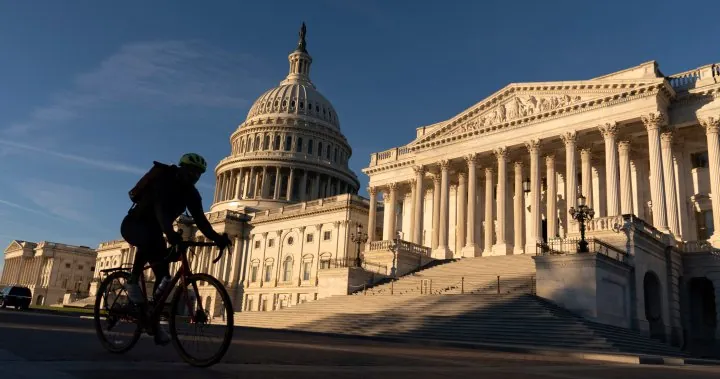
COP29 in Azerbaijan: What You Need to Know About the 2024 Climate Summit and Its Global Implications
2024-11-11
Author: Liam
The 29th Conference of the Parties (COP29) to the United Nations Framework Convention on Climate Change (UNFCCC) is currently taking place in Baku, the capital of Azerbaijan, where delegates from around the world are gathering for critical discussions about combating the climate crisis. This year's summit, running from November 11 to 22, has drawn widespread attention—and not just for the urgent climate issues at hand.
One major factor casting a shadow over the event is the recent re-election of Donald Trump as President of the United States. Known for his skepticism regarding climate change and his previous attempt to withdraw the US from the Paris Agreement, Trump’s presence raises concerns about the future of international climate commitments. Observers are anxious that he may further roll back the U.S.'s carbon-cutting commitments, which are pivotal for achieving global net-zero targets.
Critics of the summit have pointed out that Azerbaijan—a nation whose economy heavily relies on fossil fuels—may not provide the ideal backdrop for discussions centered around sustainable energy and climate action. Prominent climate activists, including Greta Thunberg, have denounced COP29 as a "greenwash conference," arguing that hosting such a significant climate event in an oil-rich country undermines its objectives.
Key Details About COP29
What Does COP Stand For? COP refers to the Conference of the Parties, with the first COP meeting held in Berlin in 1995. It serves as a critical platform for nations to negotiate climate actions with the goal of keeping global warming below 2 degrees Celsius, as outlined in the Paris Agreement.
Who Will Participate? Over 32,000 individuals, including representatives from 198 member countries, journalists, activists, and notable leaders, are participating in COP29. This will be the Taliban's first attendance since their arrival in power in Afghanistan, adding a layer of geopolitical complexity to the discussions.
A noteworthy U.S. delegation will attend, led by John Podesta, a senior advisor for international climate policy. However, with Trump poised to assume office in January 2025, there are limitations on making any binding financial commitments during the conference.
Key Issues on the Agenda
Appropriately dubbed the “finance COP,” this summit will emphasize the urgent need for funding to assist low-income countries in reducing greenhouse gas emissions. A groundbreaking UN report highlights that emerging economies, excluding China, will require investments exceeding $2 trillion annually by 2030 to prevent catastrophic climate impacts.
Disagreements over financial responsibilities continue to be a sticking point. Rich nations are urged to contribute a substantial portion, while emerging economies like China and the UAE are also being called upon to participate in financing efforts.
Another pressing agenda item includes the Nationally Determined Contributions (NDCs) that each participating nation must submit, which outline their climate action plans. With the next round of NDCs due in early 2025, aligning country-specific goals will be critical during this summit.
Progress Since Last Year’s Summit
At COP28 in Dubai, a pivotal agreement advocating for a transition away from fossil fuels was established—a first in COP history. Goals were set to achieve net-zero emissions by 2050, with interim targets for 2030 including tripling renewable energy capacity and improving energy efficiency.
However, Azerbaijan's economic reliance on fossil fuels raises questions about the ability to discuss concrete fossil fuel reductions candidly amidst conflicting economic interests.
The Trump Factor
Trump’s impending inauguration in 2025 poses uncertainties regarding the commitments made at COP29. His previous withdrawal from the Paris Agreement and downplaying of climate issues could lead to decreased U.S. participation in climate initiatives, further exacerbating an already fragile global climate architecture.
Climate Impact and 2024 Records
Scientists from the EU's Copernicus Climate Change Service have warned that 2024 is on track to be the warmest year on record, underscoring the urgent need for significant, unified action from national leaders attending COP29.
As the world watches Baku, the pressure is mounting for a successful and progressive outcome from COP29. Will this summit pave the way for meaningful agreements, or will it become just another chapter in the ongoing struggle against climate inaction? The stakes couldn't be higher!









 Brasil (PT)
Brasil (PT)
 Canada (EN)
Canada (EN)
 Chile (ES)
Chile (ES)
 España (ES)
España (ES)
 France (FR)
France (FR)
 Hong Kong (EN)
Hong Kong (EN)
 Italia (IT)
Italia (IT)
 日本 (JA)
日本 (JA)
 Magyarország (HU)
Magyarország (HU)
 Norge (NO)
Norge (NO)
 Polska (PL)
Polska (PL)
 Schweiz (DE)
Schweiz (DE)
 Singapore (EN)
Singapore (EN)
 Sverige (SV)
Sverige (SV)
 Suomi (FI)
Suomi (FI)
 Türkiye (TR)
Türkiye (TR)